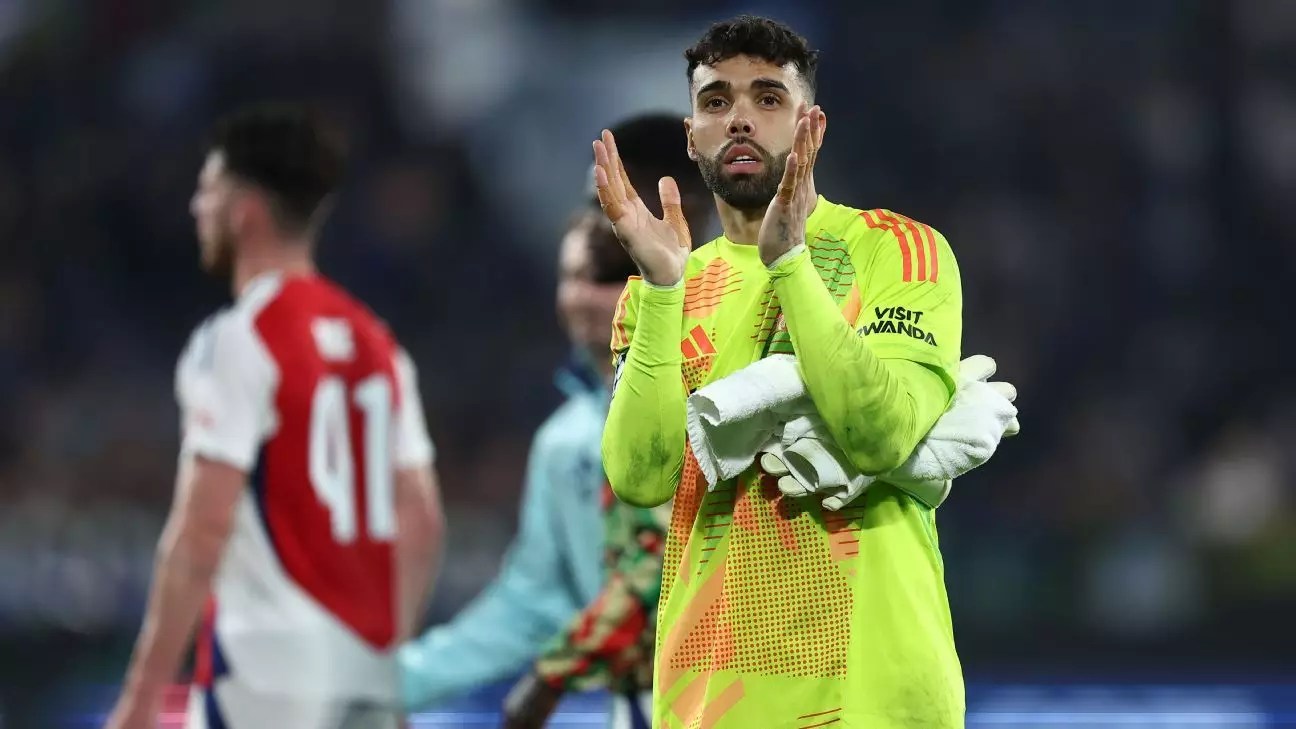When Arsenal faced Atalanta on a brisk Thursday evening in Bergamo, fans anticipated an exhilarating beginning to their Champions League campaign. Instead, the match ended in a deflating 0-0 draw that showcased the underlying issues both teams face moving forward. While a point versus the Europa League champions may signal some level of optimism for Arsenal, the lack of attacking potency revealed critical areas of concern that must be addressed in subsequent fixtures.
First Half: A Lost Opportunity
From the outset, it was evident that neither Arsenal nor Atalanta wanted to risk too much. The opening half echoed a profound lack of creativity, with both teams showing hesitance to commit players forward. Arsenal’s most notable moment came via a free-kick taken by Bukayo Saka, whose shot was swiftly dealt with by Atalanta’s goalkeeper. In contrast, Gabriel Martinelli’s speculative attempt failed to present any serious challenge, flickering harmlessly over the bar.
Atalanta, while they occasionally threatened, seemed equally disenchanted with goal-scoring. Their forward movement was sporadic and incoherent, failing to penetrate Arsenal’s disciplined defense effectively. This shared inability to carve out chances made the opening half more about caution than ambition, leaving spectators yearning for sparks of brilliance that never ignited.
Radical Shift in Dynamics
The drama picked up shortly after halftime when Arsenal’s Thomas Partey committed a foul that earned Atalanta a penalty. However, David Raya stepped into the spotlight, pulling off an extraordinary double save against Mateo Retegui that kept Arsenal’s hopes alive. That moment not only served as a significant psychological boost for the Gunners but also showcased the importance of a reliable goalkeeper in high-stakes scenarios.
This remarkable save did not catalyze an aggressive Arsenal response. Instead, as the minutes ticked by, the urgency from both sides waned. Aside from a couple of long-range efforts from Juan Cuadrado that skimmed past the target, the rest of the half was defined by Arsenal’s cautious mindset—a stark contrast to the traditionally attacking style associated with the club.
The lack of creativity and sharpness in attack became alarmingly apparent as the match progressed. Martinelli had the best opportunity of the second half, greeted by a promising assist from substitute Raheem Sterling. Yet Martinelli’s shot veered wide, encapsulating Arsenal’s difficulties in converting moments into goals. The Gunners collectively seemed content with a draw rather than pressing for a decisive victory.
Moreover, the team’s passing was often inaccurate in critical moments, leading to frustrating turnovers. While the defense remained resolute and earned a clean sheet, reinforced by impressive defensive displays from players like William Saliba and Gabriel, the offensive shortcomings illustrated an urgent need for improvement.
While Mikel Arteta’s decision-making regarding substitutions bore fruit—most notably through Sterling’s introduction—one cannot overlook the broader picture. Arteta must analyze how to install a more consistent attacking rhythm to complement their robust defense. With Arsenal’s solid midfield presence, particularly through Declan Rice’s commendable performance, the team should find a way to channel effective transition play into tangible goal-scoring opportunities.
Both Arteta and his players face scrutiny over how to cultivate a more dynamic, coherent style that can effectively break through stiff opposition defenses. The ability to create clear chances will be critical, especially as the Champions League continues to unfold.
Although the Gunners secured a valuable point against Atalanta, the 0-0 result exposes critical fragilities in their attacking framework. Moving forward in the tournament—and indeed, the domestic league—Arsenal must sharpen their offensive output. With capable players like Martinelli and Jesus failing to translate hard work into goals, the onus is on the team to harness their potential.
As they prepare for future matches, a unified attacking strategy must be developed. The Champions League presents a stage where quality teams can expose weaknesses, and Arsenal will need to adapt quickly to avoid falling short of their lofty ambitions. If they can rectify their attacking woes, the Gunners may yet find themselves emerging as serious contenders in both domestic and European competitions.


Leave a Reply